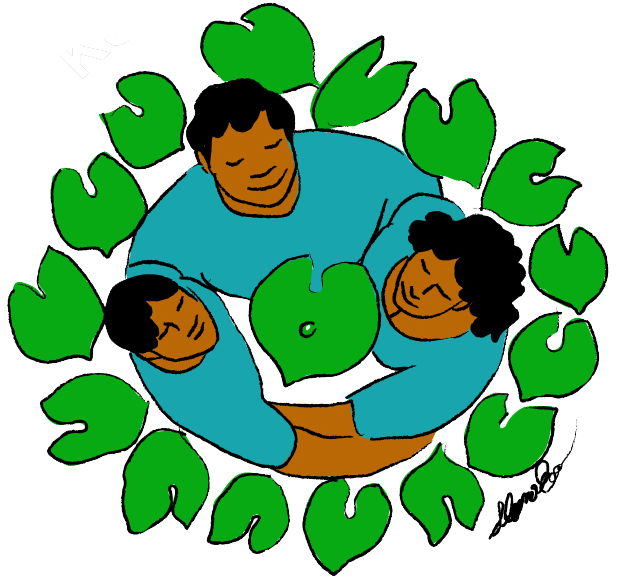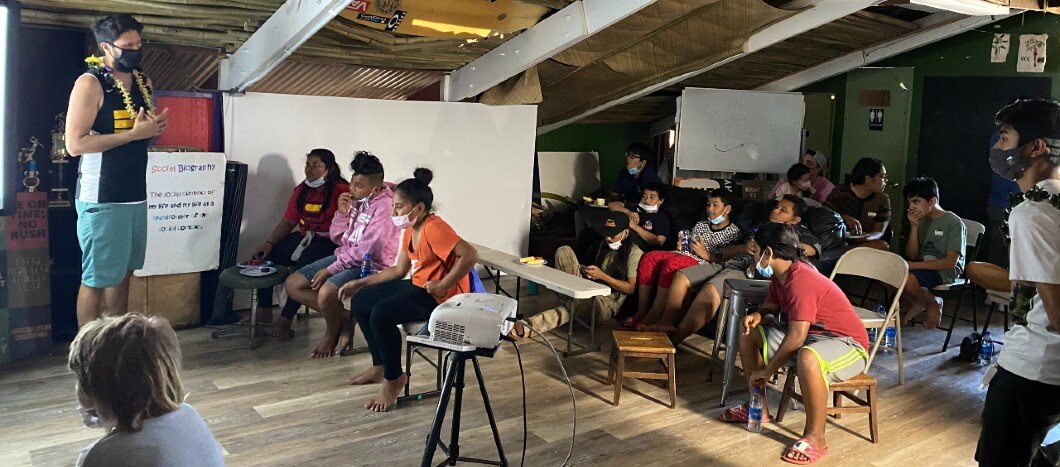Hawaiian Soul at KVIBE
The Kalihi Valley Instructional Bike Exchange, more commonly known by its acronym KVIBE, is one of KKV’s Youth Services programs. The youth that frequent KVIBE are representative of Kalihi’s low-income, largely immigrant community, whose families reside in either the Towers at Kuhio Park or Kalihi Valley Homes, two of the state of Hawaii’s largest public housing developments.
KVIBE is a youth outreach program that uses the bicycle as both a literal and figurative vehicle for learning. The youth are given the opportunity to earn a bike through sweat equity, which entails participating in a popular education curriculum that teaches them how to decolonize societal lenses of disparity with ancestral and geneaological definitions of prosperity. The majority of KVIBE youth have ancestral ties to the regions of the Philippines and Micronesia where wealth is not defined by monetary means but by the distribution of resources through healthy connections and relationships between people, the land, and the ocean. A place-based learning curriculum, KVIBE’s youth learn how to connect the stories of their immigrant identities to Hawaii, tying together the circumstances that brought their ancestors here and the concepts of traditional methods of ocean navigation that the Phillippines, Micronesia, and Hawaii all share. Thus, the bicycle is known at KVIBE as the urban canoe, a tool used to navigate the roads they travel on and to navigate their life stories.
All of this learning is used to give the youth the tools to reclaim their own narratives by being able to articulate their social biographies. Social biography is defined by KVIBE youth as “the social context of my life and my life as a transformer of the social context.” Descendants of cultures whose histories were largely passed down orally, the youth are also taught how to incorporate mediums of storytelling that honor those traditions. These mediums include video and film.
In April, the KVIBE youth had the honor of hosting the first ever community screening of the narrative short-film Hawaiian Soul. This short-film is the first part of an on-going docuseries that recounts the life and legacy of Native Hawaiian Activist and musician George Helm who, in the 1970’s, used his gift of song to gain support from his kupuna to protect the island of Kaho’olawe and stop the military bombing there.
The film-maker ʻĀina Paikai, who is Native Hawaiian,was on-site to screen the film and talk-story with the KVIBE youth afterward. Paikai was able to share his knowledge and experience as a Native Hawaiian perpetuating Native Hawaiian stories through film. The youth learned the importance of “being the ones to tell our own stories” and what the process of doing so looks like.
When asked what they like most about the film, responses from the youth included:
“I liked when the land went cry”
“the part where they went to the church”
“When they couldn’t speak their own language”
All of these responses reflecting the connections the youth felt they had between the story shared on the screen with the stories surrounding their day to day lives.






